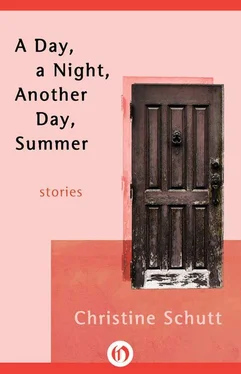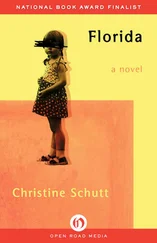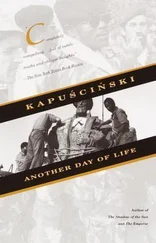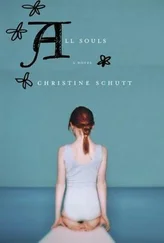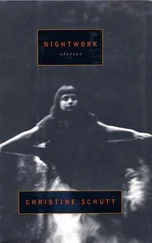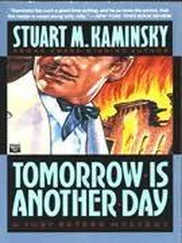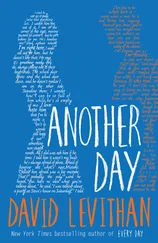So many of them now have left the city or moved to other parts of the city, met perhaps with their own disasters. I see few of the old gang anymore; only Margaret, really, from those times persists, lives, albeit alone, in the same prewar six in the Nineties off Fifth. If I press my cheek against her bedroom window, I can see the park.
Now when I visit her or when we walk, Margaret will remember someone we knew, and we will speculate about him and him and her. The couples — so many — what has become of? The little girls in French organza on the holidays — remember? The fabulous couple who sold apartments one after the other must have made a killing! Surely they are living grandly wherever it is in Connecticut. Margaret says, “I am not so sad they are gone.”
“Me, too,” I say, and we agree the quiet life now is what we wanted all along. We are glad the dinner parties are over, the silver wrapped and on the high shelf, the linens packed in tissues. No more the tedious procedures for making pies and peeling chestnuts; we have only to walk. Dinner will take care of itself; no one comes home hungry.
Margaret, especially, finds it hard to eat at night. Our walks are meant to help her appetite, but even the cannabis her son secrets her in hollowed books does not ease the way she has felt since — since when? I am not sure when. Margaret asked me to keep it a secret, and I did until a hot, dark night my husband came home and found me listening to Schubert’s Winterreise and the last, most melancholy songs. He asked, “Is it so cold already?”
The Winterreise is music I save for January, which Thoreau found, as I do, the hardest month to get through. Winter, and the bridle path is impassable and even the road walked south is balked with ice and banked snow. When we walk in winter, we must walk slowly, although we walk very slowly all the time now.
The speed suits our purpose, although I must remind Margaret of this fact whenever she falls into a fit of apologizing, as she does often, saying, “I’m sorry, I’m sorry, I’m so slow.” Then I remind her of what we are about on our walks. We are attending to nature. What business have I in the woods, Thoreau asks, if I am thinking of something out of the woods? So Margaret and I sit on the bench near the playground and look up at the honey locust’s acid green. The underside of the tree is darkly branched, veined as a body is, a green heart. Everywhere, I find, the landscape gives us back ourselves, and when the etched bark of the suffering elm reminds me of my suffering friend who would keep, above all, her dignity, I weep. I weep, and I am out of the woods again!
Margaret says, “Don’t you apologize now.”
To live each day as well as we can was Thoreau's goal, and I want it to be mine — but to see my friend scarved like a pirate! Margaret's hair was once…it was once old yellows, greens, and blues. Schoolgirl thick, braided, bound, fantastically clipped in enormous clips, her hair was a feature untouched by her husbands leaving or the upset with her boy, his expensive confusions, his noisy failures. These disappointments had never disclosed themselves in Margaret’s hair, although much of the rest of her contracted. Her brow was a scowl even sleeping. I knew. I had come upon her sleeping once and seen it: the arguments she must have had in sleep! This was when we drove to see her son at his college and slept in the last bed to be had in leaf season.
The leaves, I remember, and the colors on the toy-scale hills. Once we were beyond the broken and abandoned about the city — cones, netting, dividers, the many cautionary signs — the road widened and smoothed, and it seemed then we were alone and pioneering into the riotous crayoned woods of a time when teachers had said, “Color something special for Thanksgiving.” Red, red, red, orange we admired all the way to the white and shuttered towns, the needle steeples of the churches and incorporated signs reading seventeen something, seventeen something, earlier and earlier all the way to Margaret’s son, found lolling on a green once crossed by minutemen. “Imagine!” we had extolled, though nothing impressed him.
The boy had said, “I’m not getting anything out of school, Mom. I want to take a year off instead. I want to travel.”
Margaret said, “Peter”—his name—“Peter, will you use your head!”
The boy stayed on another year writing lackluster papers on the history of art, then groaning home for holidays — another Christmas, another Easter. He blued the apartment with French cigarettes until his weary mother said, “So travel, if this is what you want.” The boy worked his way across — across oceans, continents, misogynistic countries — forgetting what he looked like in the dirt-poor towns, the kind he was after. He wrote, “I’ve had enough of comfort,” so that who would have guessed his unexpected self-discovery? Cabinetmaking! Which he practices with mixed results near what was once his college.
Margaret, on our walks, sometimes speaks of him, of Peter, she begins, “If I had—”
Thoreau would have us live with nature in the present, above time.
But it is hard to live above time. The church bell sounds the hours and the neighborhood streets are trafficked with our pasts, backpacked students in a jangle of keys, fretful mothers. Weekday mornings, afternoons, the coffee shops clog while kids pool change. Must be three-thirty, school out, nearing four, I guess, until the ambulance’s wail or the pushy must of fire trucks, the clamor of it all, insists it is ongoing and anytime; this is a city.
This is a city, but we are in the park. We are straining to be in the park, Margaret and I, and out of reach of time and memory and sickness, which yet wash back beneath the trees. Nothing withstands sensation; the tremulous body will not hold still or still enough in the present to catch, by hand, small fish. But Thoreau, Thoreau could hold himself so stilly that rodents burrowed in his pocket, snakes slithered at his feet. He stood, as any tree might, ready, alert, large; the scrambling world would nest in him, he was in such ways constant and outstretched.
I am not so generous.
Once invited to hold her in bed, I took up Margaret’s hand instead and petted it, and when the nurse came in with her cruel means to relief — sharp objects, colorless drugs — I said, “I’ll just step out for a bit.”
The soldierly Thoreau drums past me; I am not brave. The slick at Margaret’s neck I know for sweat I will not touch for fear of catching what she has, and this is stupid, I know. I am ashamed of these feelings and of much else that I imagine when we are walking: the sea’s disgorged of shipwreck on Cohasset’s rocky shore. I see what Thoreau saw of the brig on Grampus Rock. The matted, livid, swollen, and mangled, his adjectives, piled easily as salvage, yet he would look at the dead as at a gown or scarf or tossed-up bonnet. Such losses in indifferent winds are sung, yet he would look, Thoreau, he had his pencil, surely, his diary.
Margaret has said, “I would like you to help me pick out a dress. I want pearls around my neck for the viewing.
“I want to look at the Great Thing boldly,” she says.
I want to look at trees and not at losses past or those to come; yet the boles in the trees, those trees struck half dead, the startled quality of the exposed and leafless, the dusty feather-duster grasses waving in the shallows their piteous good-byes — oh, the undulant lot of it moves with meaning! Nothing is only what it is, but we must — I must — insist on its underside, its theme, when what I have on my arm is just my friend.
My friend is fifty-six years old; the female parts of her have been scraped out. Her face is plucked, sketched. The enormous forehead is an oiled stone; the balled lids are lashless. Whatever came before and marked her has been sanded away.
Читать дальше
